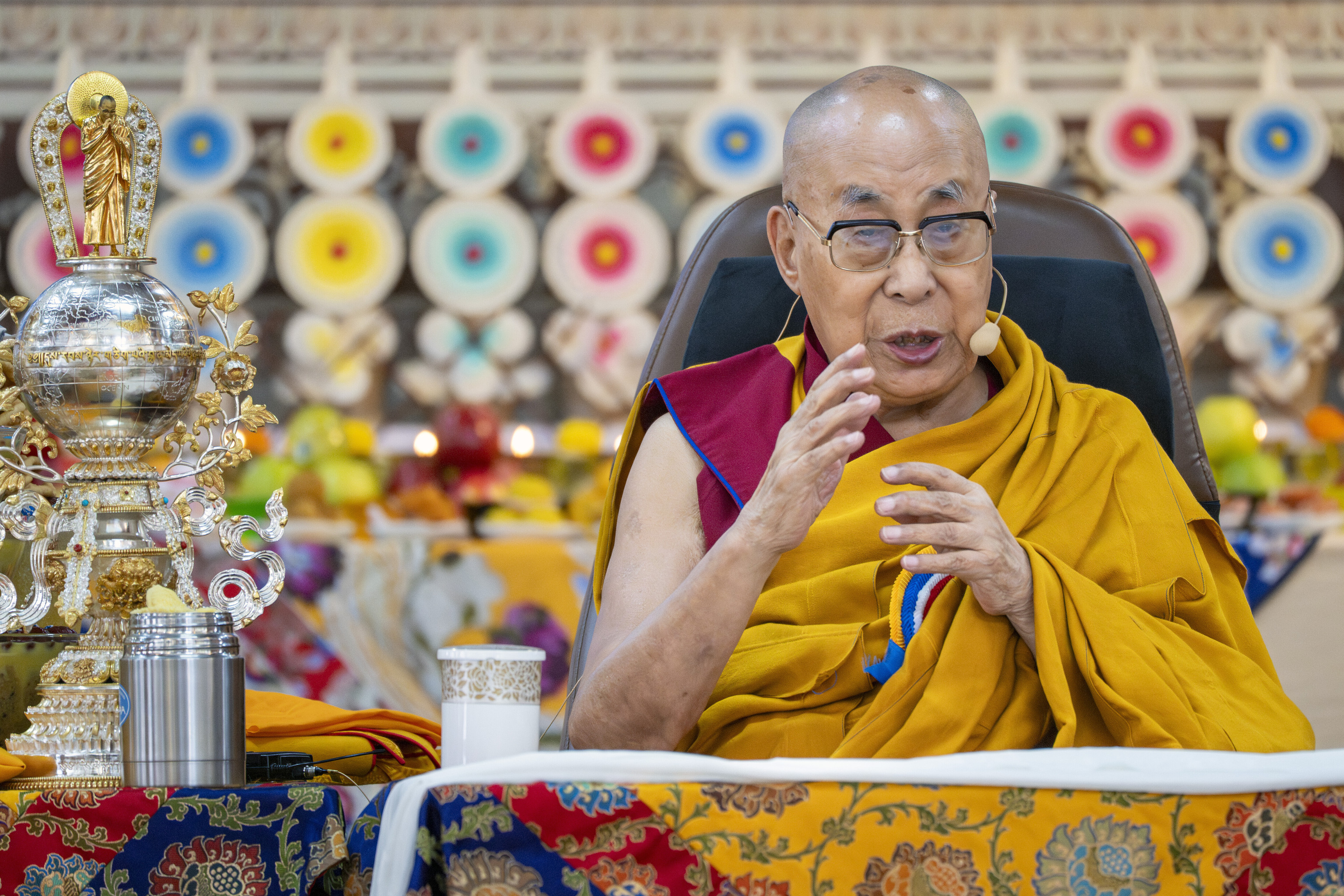Tenzin Gyatso, the fourteenth Dalai Lama, the Tibetan spiritual leader who fled into exile in India in 1959 along with thousands of people after a failed uprising against Chinese rule, is about to turn 90. That will be on Sunday. But before blowing out the candles, he has given some details for the first time about the plans for his succession: it will be the Foundation he created that will have the sole authority to recognize his future "reincarnation", which contradicts China's insistence that the Asian superpower must choose the successor.
The Dalai Lama, who can choose his next reincarnation during his lifetime or provide clues about the place or family where he will be born, concludes this Wednesday an important three-day meeting with over a hundred Tibetan Buddhist leaders and other renowned followers like Hollywood star Richard Gere. There was much anticipation to finally learn specific details or at least some clues about a successor who, as the Lama himself has pointed out on more than one occasion, must be a child born or to be born outside of China.
From Dharamsala (India), where the headquarters of the Tibetan government in exile is located, the Dalai Lama revealed that the Gaden Phodrang Trust, the non-profit organization he created to preserve and support the tradition and the institution, will have the exclusive authority to recognize his future reincarnation in consultation with Tibetan Buddhist leaders. "They must, therefore, carry out the search and recognition procedures in accordance with past tradition. No one else has the authority to interfere in this matter," he stated.
Beijing has also closely followed the Tibetan conclave. In the ruling Chinese Communist Party (CCP), the Lama is considered a separatist seeking Tibet's independence and has no right to represent the Tibetan people. Chinese officials have stated on more than one occasion that they are open to discussing the future of his position if Gyatso were to acknowledge that Tibet is an inalienable part of China.
"In Beijing, they are trying to establish their own rules to handle everything related to the Dalai Lama's reincarnation. Their purpose is to take over the institution for their political purposes," says Dolma Tsering Teykhang, vice president of the Tibetan Parliament in exile.
One thing is certain, the Chinese government will never recognize a "reincarnation" of the Dalai Lama that does not go through their hands. This already happened in 1995 with the selection of the Panchen Lama, the second most important spiritual leader. The Dalai Lama announced that Gedhun Choekyi Nyima, a six-year-old boy, son of a doctor and a nurse from Naqchú, a village in the mountains of Tibet, was the reincarnation of the eleventh Panchen Lama. But Gedhun disappeared just three days after being chosen.
Chinese authorities abducted him and decided that it would be the Buddhist leaders serving Beijing who would choose a Panchen Lama who would fulfill the dictates of the communist regime. Since then, nothing has been heard of Gedhun. Nor of his family. Five years ago, a Chinese spokesperson claimed that Gedhun was a university graduate leading a normal life and that "he did not wish to be disturbed".
The Panchen Lama is meant to recognize the successor to Tenzin Gyatso. Therefore, many believe that the Chinese government tried to control the selection of this prominent figure. Now, that position is held by a 35-year-old Tibetan named Gyaincain Norbu, a Beijing puppet who is part of China's most important political advisory body.
"The Dalai Lama is a political exile engaging in separatist activities against China under the guise of religion. What the Dalai Lama says and does cannot change the objective fact of Tibet's prosperity and development," a spokesperson from the Chinese Ministry of Foreign Affairs stated this week.
The long battle between the Tibetan community in exile and the Chinese authorities now opens another chapter after the Dalai Lama's recent statements, rejecting any interference from Beijing in the succession.
The Tibetan diaspora is supported by New Delhi and Washington. There are many rumors suggesting that the successor is in India. If so, it would break with the old ritual where high-ranking Buddhist monks, based on their visions or dreams, travel through Tibet searching for the new Lama in a "special child" under six years old who can identify objects that belonged to his predecessor.
This is how Gyatso, born as Lhamo Dhondup in 1935 to a family of farmers in the current province of Qinghai, northwest China, was identified by one of these "search groups" at just two years old.
"Since the purpose of a reincarnation is to continue the work of its predecessor, the new Dalai Lama will be born in the free world so that the traditional mission of the Dalai Lama, that is, to be the voice of universal compassion, the spiritual leader of Tibetan Buddhism, and the symbol of Tibet, can continue," writes Gyatso in his latest book, Voice for the Voiceless, published this year.
